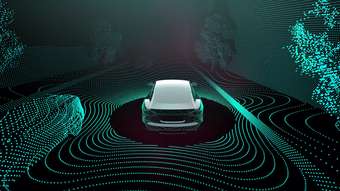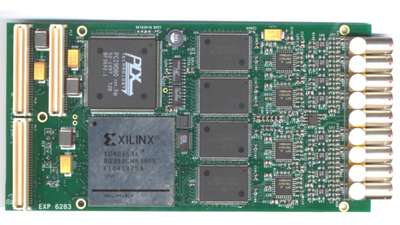Added: 31st May 2023 by CERN

CERN and software company Zenseact wrap up a joint research project that could allow autonomous-driving cars to make faster decisions, thus helping avoid accidents.
In the future, autonomous or self-driving cars are expected to considerably reduce the number of road accident fatalities. Advancing developments on this revolutionary road, CERN and car-safety software company Zenseact have just completed a three-year project researching machine-learning models to enable self-driving cars to make better decisions faster and thus avoid collisions.
When it comes to capturing data from collisions, CERN also requires fast and efficient decision making while analysing the millions of particle collisions produced in the Large Hadron Collider (LHC) detectors. Its unique capabilities in data analysis are what brought CERN and Zenseact together to investigate how the high-energy physics organisation’s machine-learning techniques could be applied to the field of autonomous driving. Focusing on “computer vision”, which helps the car analyse and respond to its external environment, the goal of this collaboration was to make deep-learning techniques faster and more accurate.
“Deep learning has strongly reshaped computer vision in the last decade, and the accuracy of image-recognition applications is now at unprecedented levels. But the results of our research with CERN show that there’s still room for improvement when it comes to autonomous vehicles,” says Christoffer Petersson, Research Lead at Zenseact.
For processing the computer vision tasks, chips known as field-programmable gate arrays (FPGAs) were chosen as the hardware benchmark. FPGAs, which have been used at CERN for many years, are configurable integrated circuits that can execute complex decision-making algorithms in micro-seconds. The researchers found that significantly more functionality could be packed into the FPGA by optimising existing resources. The best part is that tasks could be performed with high accuracy and short latency, even on a processing unit with limited computational resources.

“Our work together elucidated compression techniques in FPGAs that could also have a significant effect on increasing processing efficiency in the LHC data centres. With machine-learning platforms setting the stage for next-generation solutions, future development of this research area could be a major contribution to multiple other domains, beyond high-energy physics,” says Maurizio Pierini, Physicist at CERN.
The same techniques can also be used to improve algorithmic efficiency while maintaining accuracy in a wide range of domains, from energy efficiency gains in data centres to cell screening for medical applications.